
Find Help
More Items From Ergsy search
-

How is gonorrhoea transmitted?
Relevance: 100%
-

What is Gonorrhoea?
Relevance: 72%
-

Is there a vaccine for gonorrhoea?
Relevance: 72%
-

Can gonorrhoea be prevented?
Relevance: 71%
-
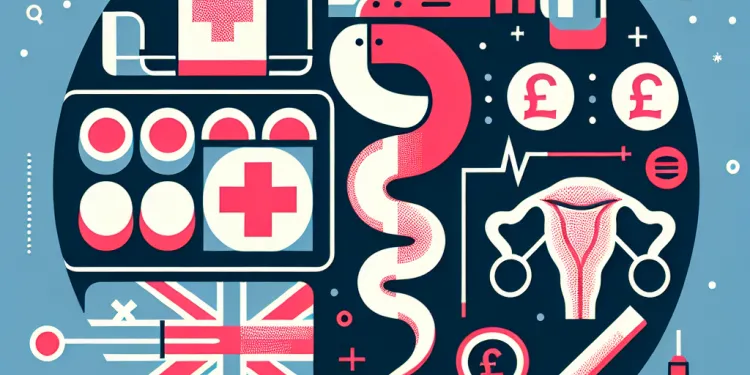
Can gonorrhoea be asymptomatic?
Relevance: 71%
-
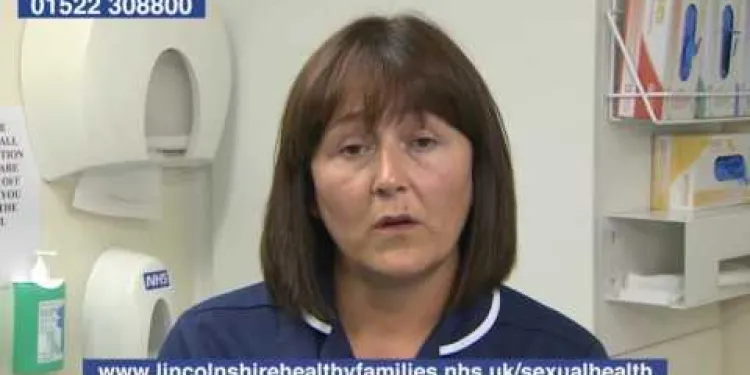
The symptoms of gonorrhoea
Relevance: 70%
-

Understanding Your Sexual Health - Gonorrhoea
Relevance: 67%
-
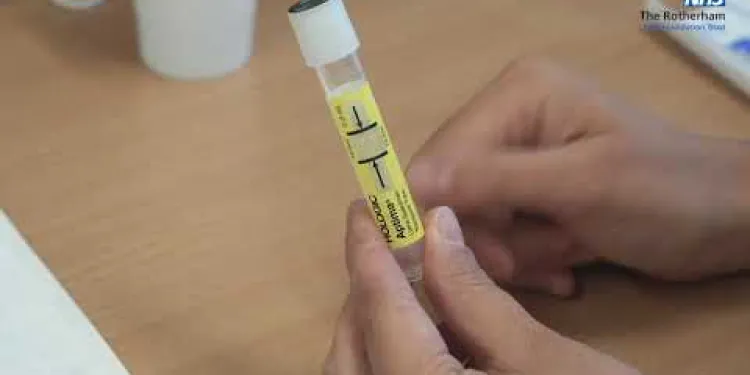
Urine test for Gonorrhoea and Chlamydia
Relevance: 64%
-

How is gonorrhoea diagnosed?
Relevance: 63%
-

Can gonorrhoea infect areas other than the genital organs?
Relevance: 63%
-

Are there any long-term effects of gonorrhoea?
Relevance: 63%
-

Pharyngeal swab for Gonorrhoea and Chlamydia
Relevance: 62%
-

Urine test for Gonorrhoea and Chlamydia
Relevance: 61%
-

What should one do if they suspect they have gonorrhoea?
Relevance: 61%
-

Why is antibiotic resistance a concern with gonorrhoea?
Relevance: 61%
-

What antibiotics are used to treat gonorrhoea?
Relevance: 59%
-
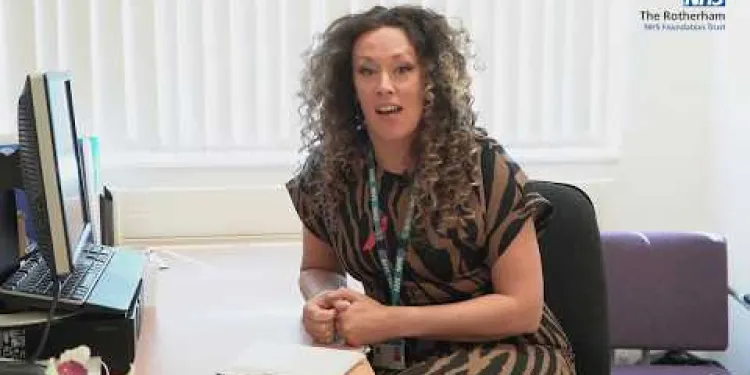
Vaginal Swab test for Gonorrhoea and Chlamydia
Relevance: 59%
-

Can you still get gonorrhoea after treatment?
Relevance: 58%
-
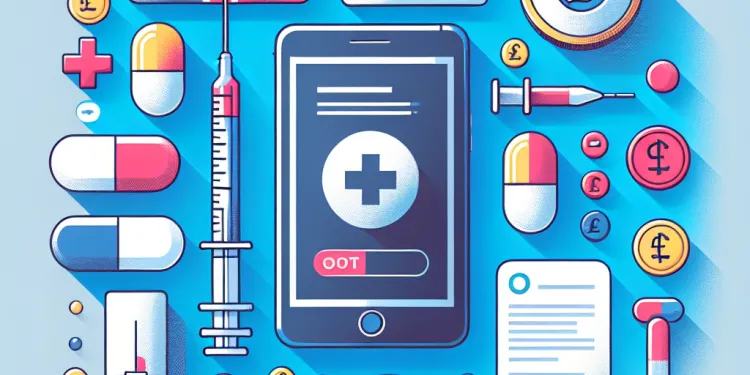
How often should one get tested for gonorrhoea?
Relevance: 57%
-
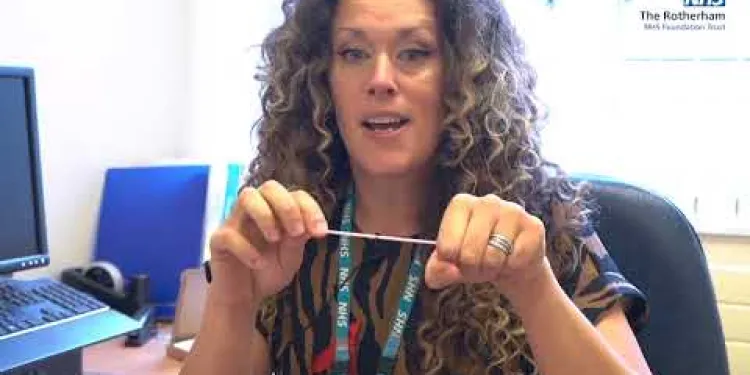
Rectal swab test for Gonorrhoea and Chlamydia
Relevance: 56%
-

Sexually transmitted infections STIs
Relevance: 52%
-
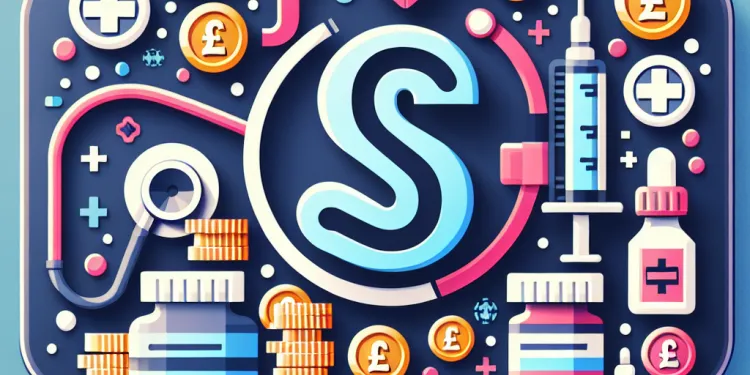
Is gonorrhoea treatable?
Relevance: 48%
-

NHS STI (Sexually Transmitted Infections) Information Video
Relevance: 46%
-
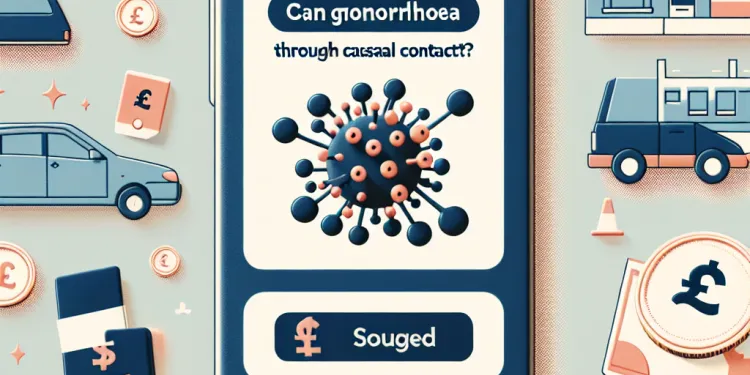
Can gonorrhoea be spread through casual contact?
Relevance: 43%
-
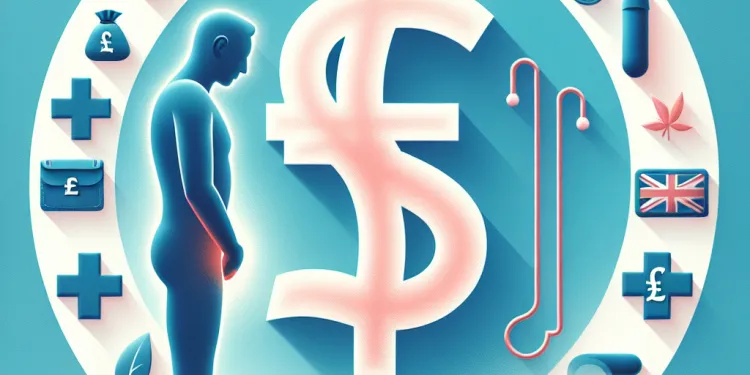
Can gonorrhoea cause complications if left untreated?
Relevance: 43%
-

How is HIV transmitted?
Relevance: 41%
-
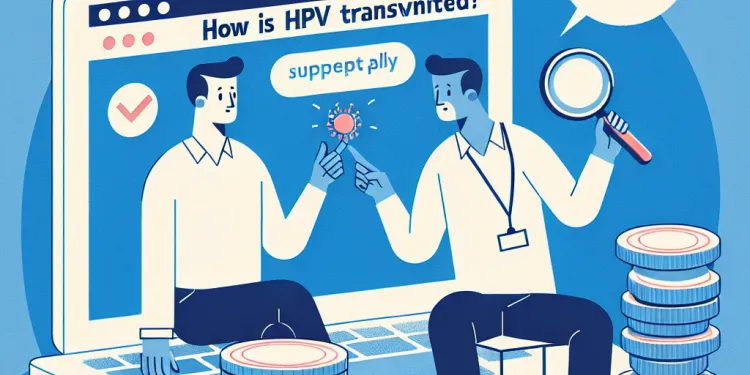
How is HPV transmitted?
Relevance: 40%
-

How is H3N2 transmitted?
Relevance: 40%
-

How is Lyme disease transmitted?
Relevance: 40%
-

How are cold sores transmitted?
Relevance: 39%
-

How is Chikungunya virus transmitted?
Relevance: 39%
-

How is Rubella transmitted?
Relevance: 39%
-

How is measles transmitted?
Relevance: 39%
-
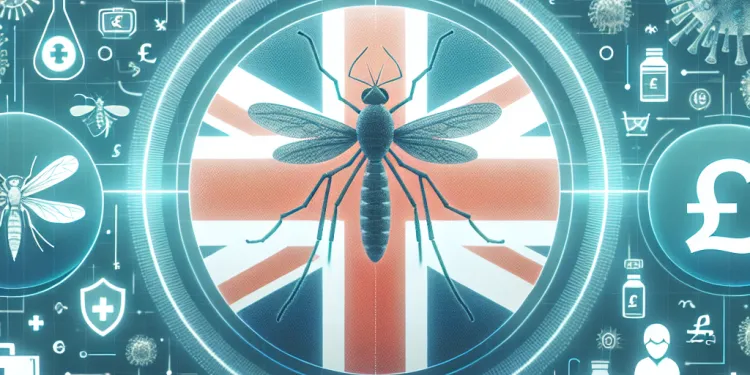
How is the Zika virus transmitted?
Relevance: 38%
-

How is measles transmitted?
Relevance: 37%
-

How is the bubonic plague transmitted?
Relevance: 37%
-

How is the Marburg virus transmitted?
Relevance: 37%
-

How is West Nile Virus transmitted?
Relevance: 37%
-

Can HIV be transmitted through insect bites?
Relevance: 37%
-

Are UK mosquitoes capable of transmitting Zika virus?
Relevance: 37%
Introduction to Gonorrhoea
Gonorrhoea is a sexually transmitted infection caused by the bacterium Neisseria gonorrhoeae. It is a common infection, particularly among young people aged 15-24. Understanding how gonorrhoea is transmitted is crucial for prevention and control of the disease.
Primary Modes of Transmission
Gonorrhoea is primarily spread through sexual contact. This includes vaginal, anal, and oral sex with an infected partner. The bacterium thrives in warm, moist areas of the reproductive tract, including the cervix, uterus, and fallopian tubes in women, and the urethra in both men and women. It can also infect the mucous membranes of the mouth, throat, eyes, and rectum.
Vaginal and Anal Intercourse
During vaginal and anal intercourse, gonorrhoea can be transmitted when genital fluids are exchanged. The infection can pass even if no ejaculation occurs. In the UK, engaging in unprotected sex significantly increases the risk of acquiring gonorrhoea. Therefore, consistent and correct use of condoms is highly recommended as a preventive measure.
Oral Sex
Gonorrhoea can also be spread through oral sex. When engaging in oral sex, the infection can be transmitted from the genitals to the throat or from oral contact with an infected partner's genitals. Symptoms in the throat are often mild and may not be noticed, but they contribute to the transmission cycle. Using dental dams and condoms during oral sex can significantly reduce the risk of transmission.
Mother-to-Child Transmission
The infection can be passed from an infected mother to her baby during childbirth. This form of transmission can result in serious complications for the newborn, such as blindness, joint infection, or a life-threatening blood infection. Pregnant women in the UK are routinely tested for gonorrhoea to prevent these outcomes.
Indirect Transmission
While much less common, it is possible, though unlikely, to contract gonorrhoea through indirect contact with contaminated surfaces. Neisseria gonorrhoeae does not survive long outside the human body; therefore, transmission typically does not occur from toilet seats, bedding, or swimming pools. However, sharing sex toys can be a potential risk if they are not properly cleaned or covered with a new condom for each use.
Preventive Measures
Preventing gonorrhoea involves reducing risk behaviors and enhancing protective practices. Regular sexual health check-ups, especially for sexually active individuals, are essential for early detection and treatment. Open communication with sexual partners about STI testing and histories is also important. For those diagnosed, prompt treatment with antibiotics is crucial, and sexual partners should also be informed and treated to prevent re-infection.
Introduction to Gonorrhoea
Gonorrhoea is a sickness you can get from having sex. It is caused by tiny germs called bacteria. Many young people between 15 and 24 years old get it. To stop gonorrhoea, it's important to know how it spreads.
How You Can Catch Gonorrhoea
Gonorrhoea spreads mostly through sex. This can be vaginal, anal, or oral sex with someone who has it. The germs like to live in warm, wet parts of the body, like the cervix, uterus, and fallopian tubes in women, and the urethra in both men and women. It can also infect the mouth, throat, eyes, and bottom.
Vaginal and Anal Sex
You can catch gonorrhoea during vaginal and anal sex, even if no one finishes (ejaculates). In the UK, having sex without a condom makes it more likely to get gonorrhoea. Using condoms the right way every time helps stop this.
Oral Sex
You can also catch gonorrhoea from oral sex. The germs can go from the private parts to the throat or from the mouth if you touch an infected partner's privates. Throat symptoms can be mild and hard to notice, but they can still spread the germs. Using dental dams and condoms during oral sex can help keep you safe.
Mother-to-Baby Transmission
If a mother has gonorrhoea, she can give it to her baby during birth. This can make the baby very sick, with problems like blindness or serious infections. In the UK, pregnant women are tested for gonorrhoea to keep their babies safe.
Other Ways of Catching Gonorrhoea
It's rare, but you can catch gonorrhoea from touching things like sex toys if they aren't clean. The germs don't live long outside the body, so toilets, bedding, or swimming pools aren't a risk. Remember to clean sex toys or use a new condom each time.
How to Stay Safe
To stop gonorrhoea, be careful and use protection. Get regular health check-ups if you have sex, so you can catch problems early. Talk to your partner about getting tested for infections. If you have gonorrhoea, medicine can make you better, but you need to tell your partner so they can get treated too.
Frequently Asked Questions
What is gonorrhea?
Gonorrhea is a sexually transmitted infection caused by the bacterium Neisseria gonorrhoeae.
How is gonorrhea transmitted?
Gonorrhea is transmitted through sexual contact with the penis, vagina, mouth, or anus of an infected person.
Can gonorrhea be transmitted through oral sex?
Yes, gonorrhea can be transmitted through oral sex with an infected partner.
Is gonorrhea contagious?
Yes, gonorrhea is a contagious infection that can be spread from person to person during sexual activity.
Can you get gonorrhea from kissing?
Gonorrhea is not typically transmitted through kissing, but it can be transmitted through oral sex.
Can gonorrhea be spread by sharing towels or bedding?
Gonorrhea is not spread by sharing towels, bedding, or through casual contact, as it requires sexual transmission.
Can gonorrhea be transmitted from a pregnant person to their baby?
Yes, a pregnant person with gonorrhea can transmit the infection to their baby during childbirth.
Can you get gonorrhea from a toilet seat?
No, gonorrhea cannot be transmitted from toilet seats.
Is gonorrhea transmitted through blood?
Gonorrhea is not typically transmitted through blood; it is primarily transmitted through sexual contact.
Can kissing someone with gonorrhea lead to transmission if they have oral gonorrhea?
While gonorrhea is not typically spread through kissing, if there are open sores in the mouth, it's theoretically possible, though not common.
How long after exposure do gonorrhea symptoms appear?
Symptoms of gonorrhea usually appear 2 to 14 days after exposure, but some people may be asymptomatic.
Can gonorrhea be spread even if there are no symptoms?
Yes, people with gonorrhea can spread the infection even if they do not have symptoms.
Is using a condom effective in preventing the transmission of gonorrhea?
Yes, using condoms correctly can significantly reduce the risk of transmitting or contracting gonorrhea.
Can gonorrhea be transmitted through mutual masturbation?
Gonorrhea is unlikely to be transmitted through mutual masturbation unless infected bodily fluids are exchanged.
What reduces the risk of gonorrhea transmission?
Practicing safe sex, including using condoms and having lower numbers of sexual partners, reduces the risk.
Can you contract gonorrhea from non-human sources?
No, gonorrhea cannot be contracted from non-human animals or environmental sources.
How is gonorrhea diagnosed?
Gonorrhea is diagnosed through laboratory testing of urine samples or swabs from the affected area.
Can gonorrhea be transmitted through anal sex?
Yes, gonorrhea can be transmitted through anal sex with an infected partner.
Are there vaccines available for gonorrhea prevention?
There are currently no vaccines available to prevent gonorrhea.
How is gonorrhea treated?
Gonorrhea is treated with antibiotics, usually an injection of ceftriaxone and an oral dose of azithromycin.
What is gonorrhea?
Gonorrhea is an illness caused by bacteria. It spreads between people. You can get it through unprotected sex.
Lots of times, people do not know they have it. It can make you feel some pain when you pee or cause different discharge.
If you think you have it, go to the doctor. The doctor can help you with medicine.
If you need help reading, ask someone you trust.
Gonorrhea is a sickness you can get from having sex. It is caused by tiny germs called Neisseria gonorrhoeae.
How does gonorrhea spread?
Gonorrhea is a disease. It can spread from one person to another.
Here is how it spreads:
- Through kissing
- During sex
Good ways to stay safe:
- Use a condom
- Ask a doctor for help
You can get gonorrhea from having sex. This can happen if you have sex with an infected person. It can be from touching with a penis, vagina, mouth, or bottom (anus).
Can you get gonorrhea from oral sex?
Yes, you can get gonorrhea if you have oral sex.
Gonorrhea is a germ that can make you sick. It spreads when you have sex.
Use a condom or dental dam to stay safe.
If you feel sick, talk to a doctor or nurse. They can help you.
Yes, you can get gonorrhea by having oral sex with someone who has the infection.
Can you catch gonorrhea from someone?
Yes, gonorrhea is a sickness that can be passed from one person to another when people have sex.
Can you get gonorrhea from kissing?
Gonorrhea is a germ that makes people sick. It is spread by secretions from the body. You usually get gonorrhea from having sex.
It is very rare to get gonorrhea from kissing.
If you are worried, talk to a doctor. They can help you with more information.
Do you need help reading? Using a computer, tablet, or phone can help. You can use text-to-speech tools to read out the words.
Gonorrhea usually does not spread by kissing. But you can catch it from oral sex.
Can you get gonorrhea from using the same towels or bedding as someone else?
You cannot get gonorrhea from sharing towels or bedding. It spreads through sex.
If you want extra help understanding, you can:
- Ask someone you trust to explain it to you.
- Use pictures or videos to learn more.
Can a pregnant person pass gonorrhea to their baby?
Yes, gonorrhea can be passed from a pregnant person to their baby.
Helpful Tip: If you are worried, see a doctor.
Yes, if a person is pregnant and has gonorrhea, they can give the infection to their baby when the baby is born.
Can you catch gonorrhea from a toilet seat?
No, you cannot get gonorrhea from sitting on a toilet seat.
Gonorrhea is an infection that is spread through close contact with another person. This usually happens during sex.
If you have more questions or need help, you can talk to a doctor or nurse. They can give you more information.
No, you cannot catch gonorrhea from a toilet seat.
Can you get gonorrhea from blood?
Gonorrhea usually spreads through sex, not through blood.
Can you catch gonorrhea from kissing?
If the person has gonorrhea in their mouth, you might get it from kissing them.
Gonorrhea is an illness you can catch. If someone has it in their throat, they can spread it by kissing.
Using a mouthwash or seeing a doctor can help.
Ask a grown-up or a doctor if you have more questions.
Gonorrhea is not usually spread by kissing. But if someone has sores in their mouth, it could be possible. Still, this is not common.
Tools like text-to-speech can help with reading. It's also useful to take breaks and read with a friend if needed.
When will you feel sick after getting gonorrhea?
Gonorrhea is a sickness you can get. If you get gonorrhea, you might start to feel sick. This can happen a few days after you catch it. Sometimes it can take up to 2 weeks before you know you are sick.
Remember, if you feel sick, it's important to see a doctor. They can help you get better.
Tools that can help you understand more:
- Use pictures to learn about gonorrhea.
- Ask someone to explain it to you with simple words.
- Watch videos that teach you about being sick.
Signs of gonorrhea show up 2 to 14 days after you catch it, but some people might not have any signs at all.
Can you get gonorrhea if the person doesn't feel sick?
Gonorrhea is an illness you can get from another person. Even if someone doesn't feel sick or look sick, they can still spread it. It's important to be careful.
Here are some things you can do:
- Talk to a doctor if you have questions.
- Use protection like condoms if you have sex.
- Get tested if you think you might have it.
Yes, people can give others gonorrhea even if they don't feel sick or have any signs of it.
Do condoms stop the spread of gonorrhea?
Using a condom can help stop getting or spreading gonorrhea, which is an infection. It is important to use condoms the right way every time you have sex.
Condoms cover parts that might spread the infection, keeping everyone safer.
If you have questions, talk to a doctor or nurse. They are there to help you stay healthy.
You can also use pictures or videos to learn more about how condoms work.
Yes, using condoms the right way can help stop the spread of gonorrhea.
Can you get gonorrhea from touching each other?
Gonorrhea is a germ that makes people sick. Mutal masturbation means touching each other's private parts.
You can't get gonorrhea just by touching each other. But, if you have gonorrhea germs on your hands and touch your private parts, you might get it.
To stay safe, wash your hands with soap and water. This will help stop the spread of germs.
It is not likely to catch gonorrhea from mutual masturbation. This usually only happens if body fluids with the infection are shared.
How can you lower the chance of getting gonorrhea?
Using condoms when you have sex helps keep you safe. Having fewer partners also makes it safer.
Can you get gonorrhea from things that are not people?
Gonorrhea is an infection that you get from people.
You cannot catch it from animals, toilets, or swimming pools.
If you need help reading, you can use a finger to follow the words. Listening to an audiobook can help too.
No, you cannot catch gonorrhea from animals or things like water or dirt.
How do doctors find out if you have gonorrhea?
Doctors can find out if you have gonorrhea with some tests.
They might ask for a sample of your pee (urine).
They might also take a swab from the throat, private parts, or bum.
After taking a sample, they test it to see if there are germs.
If you find reading hard, ask someone you trust to help explain or read together.
Doctors find out if someone has gonorrhea by doing tests. They test pee samples or use a cotton swab to take a sample from the body part that might be sick.
Can you get gonorrhea from anal sex?
Yes, you can get gonorrhea if you have anal sex with someone who is infected.
Is there a shot to stop gonorrhea?
Gonorrhea is an illness. People might want to know if there is a shot (vaccine) to stop it. Right now, there is no shot to stop gonorrhea. Doctors and scientists are working hard to make one. Until then, it is important to be safe and talk to a doctor if you have questions.
If you need help to understand more, you can:
- Ask a grown-up you trust to explain.
- Use simple words and pictures to learn about gonorrhea.
- Talk to a doctor or nurse for more help.
Right now, there are no shots or vaccines to stop gonorrhea.
How can doctors help someone with gonorrhea?
Doctors give medicine to people who have gonorrhea. The medicine helps to make the person better.
If you think you have gonorrhea, it is important to see a doctor. They will tell you what to do next.
You might need to take medicine for a little while. Follow what the doctor tells you.
If you need help remembering to take your medicine, set a reminder or ask someone to remind you.
Also, tell your friends or family if you need support. They can help you feel better.
Doctors use medicine to treat gonorrhea. They give a shot called ceftriaxone and a pill called azithromycin to help you get better.
Useful Links
Have you found an error, or do you have a link or some information you would like to share? Please let us know using the form below.
-->
This website offers general information and is not a substitute for professional advice.
Always seek guidance from qualified professionals.
If you have any medical concerns or need urgent help, contact a healthcare professional or emergency services immediately.
Some of this content was generated with AI assistance. We’ve done our best to keep it accurate, helpful, and human-friendly.
- Ergsy carfully checks the information in the videos we provide here.
- Videos shown by Youtube after a video has completed, have NOT been reviewed by ERGSY.
- To view, click the arrow in centre of video.
- Most of the videos you find here will have subtitles and/or closed captions available.
- You may need to turn these on, and choose your preferred language.
- Go to the video you'd like to watch.
- If closed captions (CC) are available, settings will be visible on the bottom right of the video player.
- To turn on Captions, click settings .
- To turn off Captions, click settings again.
More Items From Ergsy search
-

How is gonorrhoea transmitted?
Relevance: 100%
-

What is Gonorrhoea?
Relevance: 72%
-

Is there a vaccine for gonorrhoea?
Relevance: 72%
-

Can gonorrhoea be prevented?
Relevance: 71%
-

Can gonorrhoea be asymptomatic?
Relevance: 71%
-

The symptoms of gonorrhoea
Relevance: 70%
-

Understanding Your Sexual Health - Gonorrhoea
Relevance: 67%
-

Urine test for Gonorrhoea and Chlamydia
Relevance: 64%
-

How is gonorrhoea diagnosed?
Relevance: 63%
-

Can gonorrhoea infect areas other than the genital organs?
Relevance: 63%
-

Are there any long-term effects of gonorrhoea?
Relevance: 63%
-

Pharyngeal swab for Gonorrhoea and Chlamydia
Relevance: 62%
-

Urine test for Gonorrhoea and Chlamydia
Relevance: 61%
-

What should one do if they suspect they have gonorrhoea?
Relevance: 61%
-

Why is antibiotic resistance a concern with gonorrhoea?
Relevance: 61%
-

What antibiotics are used to treat gonorrhoea?
Relevance: 59%
-

Vaginal Swab test for Gonorrhoea and Chlamydia
Relevance: 59%
-

Can you still get gonorrhoea after treatment?
Relevance: 58%
-

How often should one get tested for gonorrhoea?
Relevance: 57%
-

Rectal swab test for Gonorrhoea and Chlamydia
Relevance: 56%
-

Sexually transmitted infections STIs
Relevance: 52%
-

Is gonorrhoea treatable?
Relevance: 48%
-

NHS STI (Sexually Transmitted Infections) Information Video
Relevance: 46%
-

Can gonorrhoea be spread through casual contact?
Relevance: 43%
-

Can gonorrhoea cause complications if left untreated?
Relevance: 43%
-

How is HIV transmitted?
Relevance: 41%
-

How is HPV transmitted?
Relevance: 40%
-

How is H3N2 transmitted?
Relevance: 40%
-

How is Lyme disease transmitted?
Relevance: 40%
-

How are cold sores transmitted?
Relevance: 39%
-

How is Chikungunya virus transmitted?
Relevance: 39%
-

How is Rubella transmitted?
Relevance: 39%
-

How is measles transmitted?
Relevance: 39%
-

How is the Zika virus transmitted?
Relevance: 38%
-

How is measles transmitted?
Relevance: 37%
-

How is the bubonic plague transmitted?
Relevance: 37%
-

How is the Marburg virus transmitted?
Relevance: 37%
-

How is West Nile Virus transmitted?
Relevance: 37%
-

Can HIV be transmitted through insect bites?
Relevance: 37%
-

Are UK mosquitoes capable of transmitting Zika virus?
Relevance: 37%


